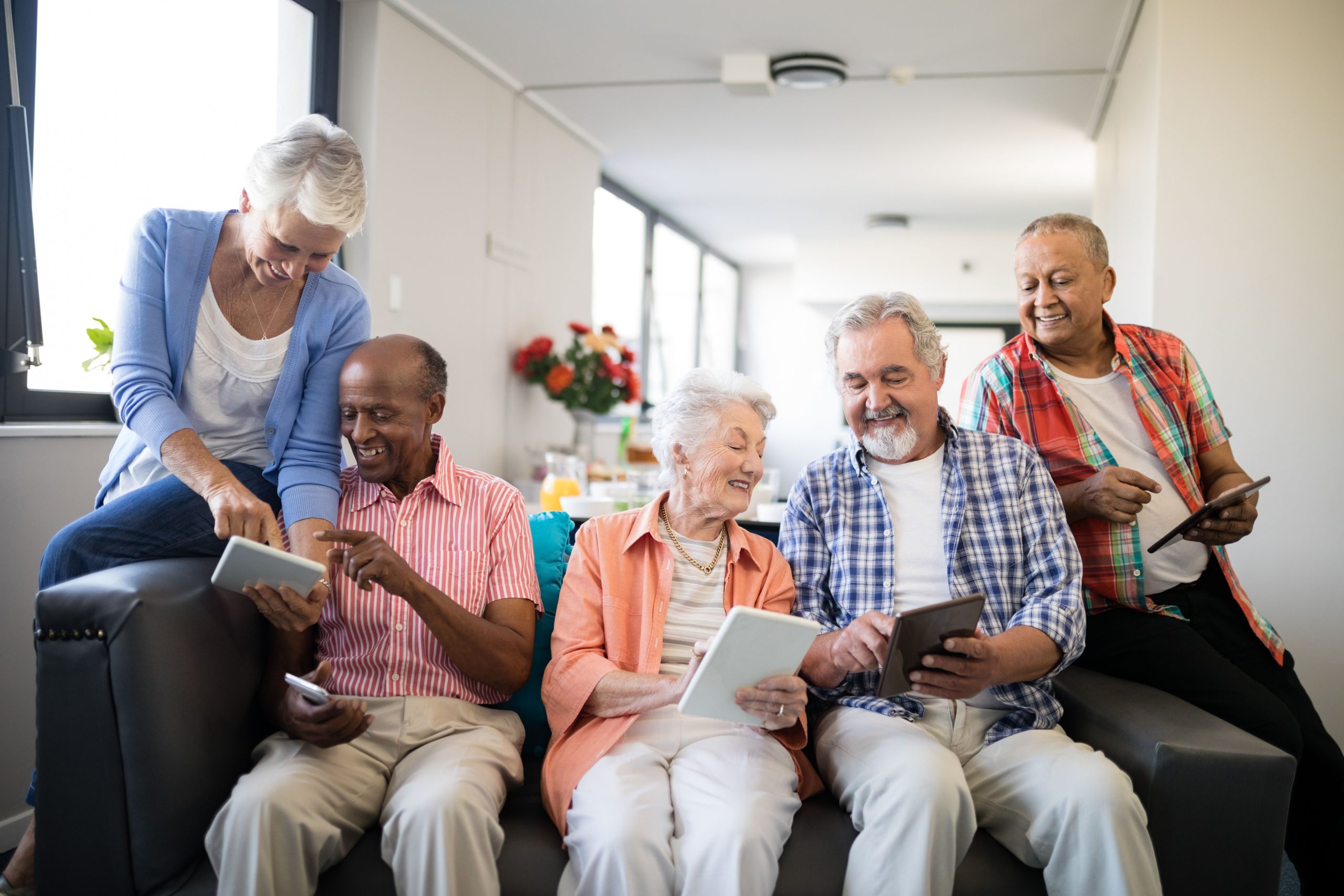Did you ever think that the internet would become such an integral part of our daily lives? The pace of technology change has been breath-taking over the past 10-20 years. It is undeniable that the internet provides us with opportunities that would have been unthinkable when it was morphing from a niche network into the world wide web in the 90s.
For those of us that are active users of ‘smart’ technology are we guilty of assuming it brings us all that little bit closer, improves our social inclusion and significantly aids our access to products and services (e.g., e-learning)?
We don’t all have the same access. Research shows that 77% of over-65s in the UK had home internet access in 2020. Ofcom, the UK’s communication regulator, identified in 2018 that 28% of over 75s use tablets and 21% have a social media account. (Datareportal)[ https://datareportal.com/reports/digital-2022-global-overview-report] reported that those aged between 55 and 64 are not purchasing groceries online or checking their health symptoms as much as those aged between 25 and 34.
The other day I broke my smartphone doing something stupid. I turned up at the train station car park and not for one minute did I think that I wouldn’t be able to pay because I didn’t have a smartphone. I couldn’t; not even at the ticket office. Feeling like a social outcast for not paying my dues it made me realise that technology could, for some, be quite the opposite of liberating. It has the potential to make some people feel like a prisoner in their own world.
Sure enough, researching this some more I found a whole series of examples where people that did not have access to the internet or a smartphone were being penalised. There are people who do not participate in activities since the introduction of cashless payment systems.
Many are not able to access services that are increasingly moving to an online only presence. It is becoming increasingly more difficult to access services if you don’t have access to the internet. This is creating a sector of society, and not just the older, that are disengaging and feeling progressively locked out. In the UK only 47% of those over 75 use the internet regularly. Of the 4 million people that don’t use the internet only 300,000 are under the age of 55. This clearly indicates that while society and technology have come a long way there is still a significant number that have every right to feel dis-enfranchised.
You may be in one of the increasingly rare areas that still has a local bank and post-office with a physical presence given that they are increasingly moving to offering their services uniquely online. Before we move everything online it’s incumbent upon organisations and the authorities to ensure people are not excluded. Not having access to ‘smart technology’ should not mean we don’t have access to the necessary services. Lack of access could be a result of various factors such as affordability, a lack of experience, education, or confidence or just a general worry over security and privacy.
It’s also important to reflect on the fact that some people find their experience of the internet and smart technology a negative one. The effects become so overwhelming that they exclude themselves. If you think this latter point is a bit fanciful then I recommend reading a fascinating book by Johann Hari called ‘Stolen Focus.’ where the author decided to go off-grid and wrote of his experience and his subsequent research.
Digital exclusion needs to be prioritised and tackled. This can be through better education and support as well as access to affordable internet services and associated ‘smart technologies. TheBoldAge strongly believe that non-digital accessibility needs to be maintained. Healthcare and community services are examples of services that should always provide non-digital options. We also believe that local and rural banking as well as post-office services should be maintained. For simple transactions and offerings this could be one consolidated service paid for by the organisations themselves. For the more difficult service offerings the consolidated office could operate an on-site internet service.
Inclusivity and equality are basic human rights and technology should be an enabler of these rights and not be a barrier. Organisations need to think long and hard about how they ensure accessibility for all; this is something we think review constantly at TheBoldAge and build into our community. I for one am calling for accessible car parks which cannot be beyond the wit of man, although I may have to go hunting for pound coins from the back of the sofa.
